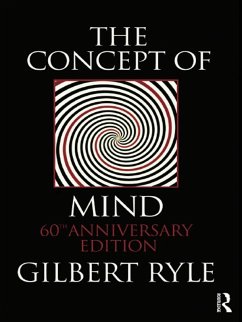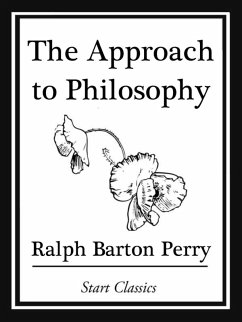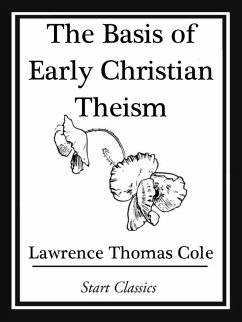
Of the Conduct of the Understanding (eBook, ePUB)
Versandkostenfrei!
Sofort per Download lieferbar
0,49 €
inkl. MwSt.
Weitere Ausgaben:

PAYBACK Punkte
0 °P sammeln!
John Locke's "Of the Conduct of the Understanding" serves as a profound exploration of the principles governing human thought and knowledge. Written in a distinctly empirical style, Locke meticulously outlines the processes of understanding, emphasizing the importance of clear definitions and the avoidance of ambiguity. Situated within the context of 17th-century rationalism and the burgeoning Age of Enlightenment, this work reflects Locke's commitment to reason as a means to acquire true knowledge, ultimately guiding readers towards a more disciplined approach to thought and intellectual inqu...
John Locke's "Of the Conduct of the Understanding" serves as a profound exploration of the principles governing human thought and knowledge. Written in a distinctly empirical style, Locke meticulously outlines the processes of understanding, emphasizing the importance of clear definitions and the avoidance of ambiguity. Situated within the context of 17th-century rationalism and the burgeoning Age of Enlightenment, this work reflects Locke's commitment to reason as a means to acquire true knowledge, ultimately guiding readers towards a more disciplined approach to thought and intellectual inquiry. As one of the most influential philosophers of his time, John Locke's views were deeply shaped by his background in medicine and natural philosophy. His experience in studying human cognition led him to advocate for a systematic approach to understanding, free from the constraints of dogmatic thinking. This work, like much of Locke's oeuvre, resonates with his belief in the transformative power of education and the need for individuals to cultivate their intellectual faculties. For readers seeking to enhance their critical thinking skills, "Of the Conduct of the Understanding" is an essential text. Locke's clear, cogent arguments provide invaluable tools for navigating the complexities of thought, making this work a vital resource for philosophers, educators, and anyone interested in the foundations of human understanding.
Dieser Download kann aus rechtlichen Gründen nur mit Rechnungsadresse in A, B, BG, CY, CZ, D, DK, EW, E, FIN, F, GR, H, IRL, I, LT, L, LR, M, NL, PL, P, R, S, SLO, SK ausgeliefert werden.













